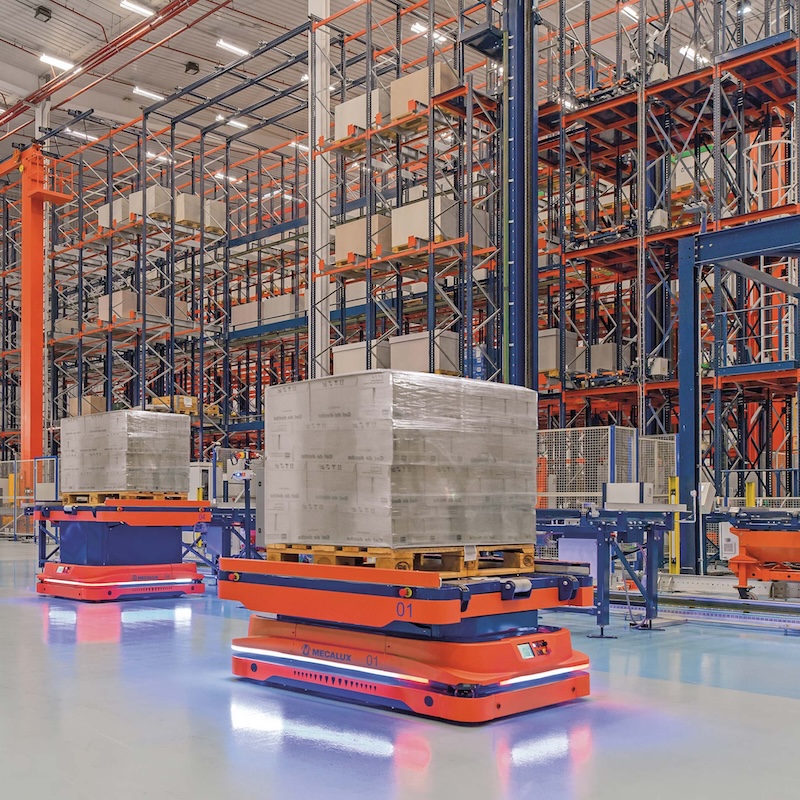
A recent study conducted by Mecalux in collaboration with the MIT Intelligent Logistics Systems Lab reveals that artificial intelligence (AI) has become integral to the operations of over 60 percent of warehouses worldwide. This transformation, based on a survey of more than 2,000 logistics leaders across 21 countries, highlights a significant shift towards automation and advanced technology in the logistics sector.
The research indicates that AI and machine learning have evolved from experimental tools to essential components that drive productivity and enhance operational accuracy. With over 90 percent of warehouses now employing some form of AI or automation, the industry has reached an unexpected level of sophistication, particularly among larger companies with complex logistics networks. The findings show that more than half of surveyed organizations report advanced or fully automated operations, illustrating the growing maturity of the sector.
Performance and Financial Returns from AI Investments
According to Javier Carrillo, CEO of Mecalux, “The data show that intelligent warehouses outperform not only in volume and accuracy, but in adaptability.” As the peak demand of Black Friday approaches, companies that have invested in AI technologies are not only faster but also more resilient, better positioned to handle market fluctuations.
The study highlights that investments in AI are yielding quicker returns than anticipated. Many businesses allocate between 11 percent and 30 percent of their warehouse technology budgets to AI and machine-learning initiatives, with typical payback periods ranging from two to three years. These investments are leading to tangible improvements in inventory accuracy, throughput, labour efficiency, and error reduction, indicating a shift from exploratory spending to building long-term capabilities.
Despite these advancements, organizations continue to encounter challenges when scaling AI across their operations. Dr. Matthias Winkenbach, Director of the MIT ILS Lab, notes, “The hard part now is the last mile: integrating people, data and analytics seamlessly into existing systems.” Major obstacles include technical expertise, system integration, data quality, and implementation costs, which complicate the connection of advanced tools with legacy systems.
Expanding Roles and Future Trends in Warehousing
Significantly, the report dispels concerns about automation replacing human workers. Rather than eliminating jobs, AI is fostering higher productivity and job satisfaction among employees. Over three-quarters of organizations surveyed reported increases in employee productivity and satisfaction after implementing AI tools, with more than half also expanding their workforce. The emergence of new roles, such as AI/ML engineers, automation specialists, and data scientists, underscores that intelligent automation is enhancing, rather than diminishing, human involvement in warehouse operations.
Looking ahead, nearly all companies surveyed plan to increase their AI usage within the next two to three years. A striking 87 percent expect to raise their AI budgets, and 92 percent are currently implementing or planning new AI initiatives. The next frontier for these businesses is decision-making technologies, particularly generative AI, which is perceived as the most valuable tool in logistics today. Applications of generative AI include automated documentation, warehouse layout optimization, and process-flow design, all aimed at improving operational efficiency.
Dr. Winkenbach states, “Traditional machine learning is great at predicting problems, but generative AI actually helps you engineer the solution.” This advancement suggests that as AI capabilities mature, warehouses will increasingly transition from merely predicting issues to automating effective responses.
The study underscores that as the logistics sector gears up for its busiest season, the integration of AI not only enhances operational efficiency but also supports workers and fosters new capabilities across global supply chains. The evolution of warehouses into intelligent systems promises to reshape the industry, ensuring that they are not only automated but also equipped to thrive in an ever-changing market landscape.







